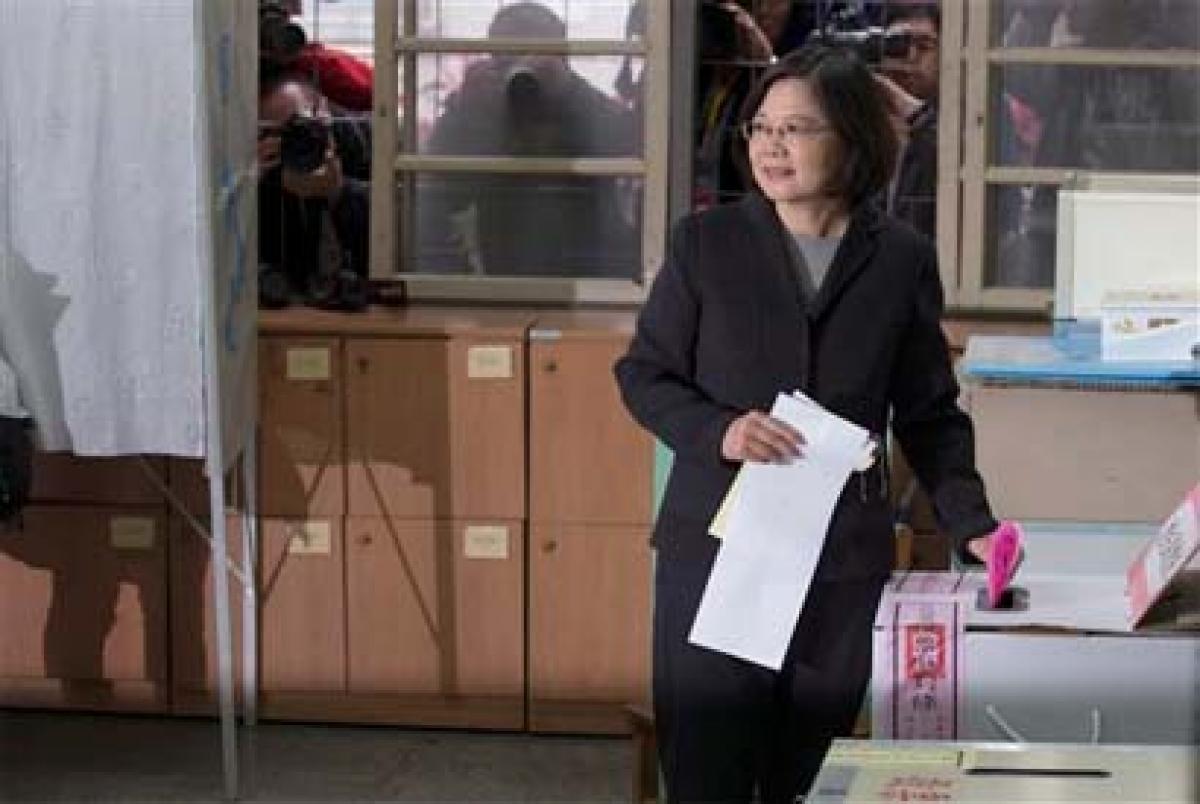Live
- Income tax refunds jump 46.3 pc to Rs 3.04 lakh crore in April-Nov
- Financial Intelligence Unit detects undisclosed income worth Rs 11,000 crore in 2024: Centre
- Odisha BJP chief to be elected in January
- AP Home Minister Anitha alerts officials amid rains in heavy Rains in Tirupati
- Taluk Guarantee panel
- Uber Launches Uber Moto Women for Safer and Flexible Rides in Bengaluru
- ‘Fear’ pre-release event creates waves
- Champions Trophy 2025 Host Change? Indian Broadcaster's Promo Sparks Controversy
- Nabha Natesh introduced as Sundara Valli from ‘Swayambhu’
- Aamir Khan praises Upendra's ‘UI: The Movie’ ahead of its release
Just In

Voting was underway Saturday in Taiwan\'s presidential election in which the island\'s China-friendly Nationalist Party appears likely to lose power to the pro-independence opposition, amid concerns that the island\'s economy is under threat from China and broad opposition among voters to Beijing\'s demands for political unification.
Voting was underway Saturday in Taiwan's presidential election in which the island's China-friendly Nationalist Party appears likely to lose power to the pro-independence opposition, amid concerns that the island's economy is under threat from China and broad opposition among voters to Beijing's demands for political unification.
The Democratic Progressive Party's Tsai Ing-wen is poised to become the self-governing island's first female president, returning the main opposition party to power after eight years under Nationalist President Ma Ying-jeou, who is constitutionally barred from another term.
The outcome of the contest for a majority in the 133-seat legislature remains uncertain, with independents and smaller parties posing a threat to both the Nationalists and the DPP.
A win for Tsai would introduce new uncertainty in the complicated relationship between Taiwan and mainland China, which claims the island as its own territory and threatens to use force if it declares formal independence.
"This is not about defeating the other party. This is about working to overcome the obstacles in Taiwan's path," Tsai told supporters gathered in the rain at a final rally Friday night in front of the presidential office building in the center of the capital, Taipei.
Tsai has pledged to maintain the status quo of de-facto independence for the island of 23 million, although she has refused to endorse the principle that Taiwan and China are parts of a single nation to be unified eventually.
Beijing has made that its baseline for continuing negotiations that have produced a series of pacts on trade, transport and exchanges. Observers say China is likely to adopt a wait-and-see approach to Tsai's presidency, but might use diplomatic and economy pressure if she is seen as straying too far from its unification agenda.
Taiwan was a Japanese colony from 1885 to 1945 and split again from China amid civil war in 1949.
Tsai's Nationalist opponent, Eric Chu, was a late entry in the race after the party ditched its original candidate, Hung Hsiu-chu, whose abrasive style was seen as alienating voters. He has trailed Tsai by double digits in the latest polls.
China has largely declined to comment on the polls, although its chief official for Taiwan affairs this month warned of potential major challenges in the relationship in the year ahead. Tsai supporters appeared confident that ties with China would weather a change in government.
"As long as Tsai doesn't provoke the other side, it's OK," said former newspaper distribution agent Lenex Chang, 66, who attended Tsai's rally. "If mainland China democratizes someday, we could consider a tie-up," he added.

© 2024 Hyderabad Media House Limited/The Hans India. All rights reserved. Powered by hocalwire.com







